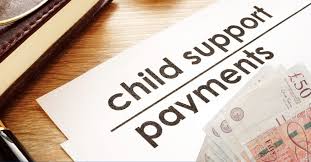


Introduction
Child Support And Maintenance-Payment;
Child support and maintenance payments are crucial aspects of family law, often arising in cases of divorce, separation, or disputes over child custody. In Nigeria, these financial obligations are designed to ensure the well-being and proper upbringing of a child, reflecting the legal and moral responsibility of parents to provide for their children, regardless of marital status. Navigating this area can be complex, involving statutory provisions, judicial precedents, and societal norms. This article provides a comprehensive guide to understanding child support and maintenance payments in Nigeria, detailing the legal framework, processes, challenges, and practical steps involved.
In Nigeria, the responsibilities of parents toward their children do not end with the dissolution of a marriage or the breakdown of a relationship. A significant and often contentious aspect of post-separation arrangements involves child support and maintenance payments. These payments are legal obligations intended to ensure that children continue to receive the financial support necessary for their growth and development, regardless of the parents’ marital status or personal relationship. While the concept of child support may seem straightforward, navigating the practicalities, legal frameworks, and societal expectations that surround it in Nigeria can be far more complex than many anticipate.
The Nigerian legal system, which blends customary, statutory, and Islamic law, adds layers of complexity to child support issues. Statutorily, the Matrimonial Causes Act, the Child Rights Act, and other related laws provide a structure for determining who is responsible for supporting a child, what constitutes fair support, and how disputes are to be resolved. However, the actual enforcement and application of these laws vary across states and local jurisdictions, particularly given that not all states in Nigeria have domesticated the Child Rights Act. Moreover, social and cultural norms can influence judicial decisions and affect how both parents and courts approach issues of child support.
The importance of understanding child support and maintenance payments in Nigeria goes beyond legal compliance. It touches on moral obligations, the best interests of the child, gender dynamics, and the financial realities of modern parenting. For many custodial parents, especially women, pursuing child maintenance can be a lifeline in the face of economic hardship. Conversely, non-custodial parents, typically fathers, may view such obligations with resentment or confusion, especially if they feel excluded from decisions concerning the child’s upbringing or are under financial strain themselves. This tension often leads to prolonged disputes, legal battles, and emotional trauma for both parents and children.
It is important to note that child support is not punitive; rather, it is designed to ensure that children are not disadvantaged due to their parents’ separation. It covers essentials such as food, clothing, education, healthcare, and general welfare. The law is also clear that the responsibility to provide support lies with both parents, though the extent of that responsibility may depend on each party’s income and circumstances. Nigerian courts generally prioritize the welfare of the child above all else when making decisions about maintenance. The guiding principle is the best interest of the child, a standard that transcends legal texts and is grounded in both national and international child protection frameworks.
In practice, however, enforcing child support orders can be difficult. Many custodial parents find themselves in court repeatedly, trying to enforce judgments or compel defaulting parties to comply with financial obligations. Some non-custodial parents may exploit procedural delays or ambiguities in the law to avoid making payments. Others may genuinely lack the means to provide consistent financial support. These issues underscore the urgent need for reforms that promote clarity, efficiency, and fairness in the enforcement of child support arrangements.
Another challenge is the lack of awareness among the public regarding their rights and obligations under Nigerian family law. Many parents, especially those in low-income or rural communities, are unaware that they can seek legal remedies for child support. Legal aid services are limited, and cultural stigmas may discourage custodial parents from pursuing claims. Furthermore, some parents may mistakenly believe that child maintenance is solely a mother’s responsibility or is only necessary when a formal marriage existed. These misconceptions can have serious implications for the well-being of children and the financial stability of single-parent households.
It is also worth noting the distinction between child support and spousal maintenance in Nigerian law. While the two are often discussed together, they are legally distinct concepts. Child support refers specifically to the financial upkeep of the child, while spousal maintenance may be ordered by the court to support a former spouse in certain circumstances. The court may grant both types of maintenance depending on the facts of the case, including the duration of the marriage, the financial capacity of each party, and the needs of the child and custodial parent. Understanding these distinctions is essential for anyone seeking legal recourse or trying to negotiate a fair settlement after separation.
Legal practitioners in Nigeria play a crucial role in guiding families through these processes. From filing applications in the appropriate courts to negotiating settlements and advocating for their clients’ rights, lawyers are instrumental in ensuring that justice is served and that children’s needs are met. Unfortunately, the high cost of legal services can be a barrier for many families. Expanding access to affordable or pro bono legal services would go a long way in ensuring that all children—regardless of their parents’ financial status—receive the support they are entitled to.
In recent years, some strides have been made toward improving the legal landscape surrounding child support in Nigeria. Court rulings have emphasized the equal responsibility of both parents and the need to prioritize the welfare of the child. Civil society organizations have also stepped in to raise awareness, offer mediation services, and provide legal support. However, systemic challenges remain, including delays in court proceedings, inconsistent rulings, and lack of centralized databases to track compliance with court orders.
In conclusion, the issue of child support and maintenance payments in Nigeria is deeply intertwined with legal, cultural, economic, and social factors. While laws exist to guide and enforce child support obligations, practical implementation remains a challenge for many families. Both custodial and non-custodial parents must navigate a maze of legal requirements, societal expectations, and financial realities.
A comprehensive understanding of the legal framework, coupled with increased public awareness and access to justice, is critical to ensuring that children receive the support they need to thrive. This article aims to serve as a practical guide for parents, legal practitioners, and policymakers who are committed to promoting child welfare and equitable parental responsibility in Nigeria.
Understanding Child Support and Maintenance in Nigeria
Child support refers to the financial contribution that a parent makes towards the welfare of their child after a separation or divorce. This obligation is not just limited to the biological parents but may also extend to adoptive parents or guardians who have taken on the parental role. Maintenance payments, on the other hand, encompass broader financial support that includes not just the child’s needs but sometimes also the spouse’s needs, depending on the circumstances.
Legal Framework Governing Child Support in Nigeria
- The Child’s Rights Act 2003: This Act is the primary legislation governing child rights and welfare in Nigeria. Section 14 of the Act mandates that parents are responsible for the upbringing and maintenance of their children. Although the Act is federally enacted, it applies only to states that have domesticated it.
- Matrimonial Causes Act 1970: This Act is crucial in cases of divorce and separation, providing the framework for maintenance orders. It empowers the court to order financial provision for a child’s upkeep, schooling, and general welfare during and after matrimonial proceedings.
- Customary Law: In many parts of Nigeria, customary law plays a significant role in determining child maintenance obligations. Customary law varies widely across different ethnic groups and communities, and it often intersects with statutory laws, influencing court decisions.
- Sharia Law: In northern Nigeria, Sharia law governs child support in Muslim-majority states. Sharia emphasizes the father’s duty to provide for the child’s needs, including education, healthcare, and shelter.
Determining Child Support and Maintenance Amounts
The amount of child support and maintenance payments in Nigeria is not fixed and is determined based on several factors:
- Income of Both Parents: The court considers the financial capacity of both parents. The paying parent’s income, expenses, and lifestyle are scrutinized to ensure that the amount set is fair and sustainable.
- Child’s Needs: These include education, healthcare, clothing, food, and general welfare. The specific needs of the child, such as medical requirements or special education, are critical considerations.
- Standard of Living: The court often seeks to maintain the child’s pre-separation standard of living, ensuring minimal disruption to the child’s lifestyle.
- Number of Children: The number of children being supported also affects the payment amount, with adjustments made for multiple dependents.
- Parent’s Responsibilities: Other financial responsibilities of the parent, including existing maintenance orders or obligations to other children, are considered.
Types of Maintenance Orders
- Interim Maintenance Orders: These are temporary orders issued by the court during ongoing proceedings. They ensure that the child’s immediate needs are met while the case is being resolved.
- Permanent Maintenance Orders: These are long-term orders that stipulate the amount and frequency of payments after the court proceedings have concluded. They can be modified based on changes in circumstances.
- Lump Sum Payments: In some cases, the court may order a one-time lump sum payment to cover the child’s needs instead of periodic payments.
Process of Filing for Child Support in Nigeria
- Initiating a Petition: The process begins by filing a petition in a family court or a high court with the requisite jurisdiction. The petition should detail the grounds for seeking child support and the financial needs of the child.
- Evidence Submission: Both parties are required to submit evidence of income, expenses, and any other financial documentation that can assist the court in determining the appropriate amount.
- Court Hearing: The court evaluates the evidence presented, including testimonies from both parents, to make an informed decision on maintenance.
- Issuance of a Maintenance Order: After the hearing, the court issues a maintenance order outlining the specifics of the child support payments, including the amount, payment frequency, and duration.
Enforcement of Child Support Orders
Child support and maintenance orders are legally binding. If a parent fails to comply, enforcement measures can be taken, including:
- Income Garnishment: The court may order that the maintenance amount be deducted directly from the paying parent’s salary or income.
- Seizure of Assets: In extreme cases, the court can authorize the seizure of the paying parent’s assets to fulfill the maintenance obligation.
- Contempt of Court: Failure to comply with a court order can result in a contempt of court charge, leading to fines or imprisonment.
Modification of Maintenance Orders
Maintenance orders can be reviewed and modified if there are significant changes in circumstances, such as loss of income, remarriage, or changes in the child’s needs. Either parent can apply for a modification by filing a motion with the court.
Challenges in Child Support and Maintenance in Nigeria
- Cultural Barriers: In some Nigerian communities, cultural norms may discourage or undermine formal maintenance agreements, especially when customary law favors patriarchal responsibilities.
- Non-Domestication of Child Rights Act: Not all states in Nigeria have domesticated the Child Rights Act, leading to inconsistencies in how child support cases are handled.
- Enforcement Issues: Even when orders are issued, enforcing them can be problematic, particularly if the paying parent is non-compliant or resides outside Nigeria.
- Financial Disclosure: Some parents may conceal their actual income or assets to reduce their maintenance obligations, complicating the court’s assessment.
- Judicial Delays: The court process can be slow, causing delays in securing maintenance for the child, which can affect their well-being.
Practical Tips for Navigating Child Support and Maintenance Payments
- Engage a Family Law Expert: Hiring a knowledgeable family law lawyer is crucial for navigating the complexities of child support cases.
- Document All Expenses: Keep detailed records of all expenses related to the child’s upkeep, as this will support your case during the court proceedings.
- Open Communication: Where possible, maintain open communication with the other parent to negotiate amicable settlements that serve the best interests of the child.
- Stay Informed: Be aware of your rights and obligations under Nigerian law, including statutory updates and changes in the family law landscape.
- Plan for Future Adjustments: Understand that maintenance orders can be adjusted based on changes in circumstances, and stay proactive in requesting modifications when necessary.
Conclusion
Child support and maintenance payments are vital to ensuring that children receive the care and financial support they need, regardless of their parents’ relationship status. Understanding the legal framework, navigating the court process, and being aware of common challenges can help parents fulfill their obligations and protect their children’s interests. Whether you are seeking support or are the paying parent, the key to navigating child support in Nigeria lies in being well-informed, prepared, and proactive in addressing the legal and financial aspects of this critical responsibility.
As Nigeria continues to evolve socially and legally, addressing the challenges associated with child support and maintenance payments remains an urgent priority. The importance of these financial obligations cannot be overstated, as they directly affect the quality of life, development, and emotional well-being of countless Nigerian children. While the legal framework does provide avenues for enforcing child support, it is evident that implementation lags behind due to a combination of systemic inefficiencies, cultural attitudes, and limited access to legal recourse. If Nigeria is to make genuine progress in child welfare and gender equity, then reforms in child support enforcement must be placed high on the national agenda.
The reality on the ground shows that many custodial parents, often women, are left to shoulder the burdens of raising children alone, sometimes without the necessary financial backing from the non-custodial parent. This has led to increased rates of child poverty, school dropouts, and emotional trauma, all of which are avoidable with an efficient and just child maintenance system.
In cases where court orders are made, the difficulty in enforcing those orders remains a significant stumbling block. From court delays to non-compliance and lack of follow-up mechanisms, the gaps in the system are evident and harmful. If a child’s right to maintenance is to be truly protected, Nigeria must invest in strengthening its family court systems, improving access to legal aid, and adopting innovative solutions such as payment tracking systems and penalties for defaulting parties.
Another crucial aspect of the discussion around child support is the need to change societal perceptions. Many people still perceive child maintenance as a form of punishment rather than a necessary provision for the well-being of the child. This mindset contributes to the reluctance of some parents to fulfill their legal responsibilities. Public sensitization campaigns must be encouraged, especially in rural areas and among traditional communities, to educate citizens about the rights of the child and the responsibilities of both parents. Only through education and cultural shift can the deeply entrenched myths about parenting roles and financial responsibility be dismantled.
The role of the judiciary in shaping the narrative and setting precedents cannot be overlooked. Nigerian courts must continue to interpret and enforce child support laws in ways that uphold the constitutional principle of non-discrimination and the paramount interest of the child. Judicial officers should be trained continuously on issues related to child welfare and international best practices in child maintenance. Consistency in court decisions and adherence to the principles outlined in the Child Rights Act will go a long way in boosting public confidence in the system and encouraging compliance by all parties.
In addressing enforcement, technology presents a unique opportunity for transformation. The establishment of a national child support registry could help track payments, issue reminders, and impose automated penalties for defaulters. Similarly, linking maintenance enforcement with employment or tax records could help identify and track non-custodial parents who default on their obligations. In countries like South Africa and the United States, such systems have helped streamline enforcement and reduce the rate of unpaid maintenance significantly. Nigeria could benefit greatly from studying and adapting such models to suit its own legal and economic landscape.
Furthermore, mediation and alternative dispute resolution (ADR) mechanisms should be promoted as part of child support settlement processes. Litigation is not only costly and time-consuming but can also escalate tensions between estranged parents, to the detriment of the child. Mediation allows for a more collaborative, less adversarial approach, encouraging parents to reach agreements that reflect both parties’ financial capacities while keeping the child’s needs at the forefront. Legal aid organizations and non-governmental organizations should be empowered and supported to offer such services to families across the country.
Another area that deserves attention is the plight of non-custodial parents who are willing but unable to meet child support obligations due to genuine financial hardship. There must be mechanisms for reviewing and adjusting support orders where necessary, to reflect changes in circumstances such as loss of employment or health challenges. These adjustments should not be used as an excuse to shirk responsibility but should acknowledge that fairness must cut both ways. Legal reforms should also consider offering guidance on graduated payment systems or community service alternatives in cases of hardship.
The ultimate goal of any child support and maintenance system should be to protect the welfare of the child. It is not about winning or losing a legal battle but about ensuring that every child, regardless of the marital status of their parents, has access to basic necessities and a fair chance at a decent life. This requires more than just court orders—it requires commitment, cooperation, and a shared societal understanding that parenting is a lifelong obligation that cannot be ignored. Both parents must rise above personal grievances and work together, directly or indirectly, to meet the needs of their children.
As this article has shown, navigating child support and maintenance payments in Nigeria requires a careful blend of legal knowledge, emotional intelligence, cultural sensitivity, and social responsibility. From understanding the laws to dealing with enforcement challenges, both parents and legal practitioners must approach these matters with a focus on the child’s best interests. Stakeholders at every level—government, judiciary, civil society, and individual families—must collaborate to build a more responsive and equitable child maintenance system in Nigeria.
In conclusion, the path toward a functional and compassionate child support system in Nigeria is paved with opportunities for reform, education, and innovation. By fostering accountability, promoting legal awareness, and leveraging technology, Nigeria can create a framework where every child receives the support they deserve. It is only when the needs of children are consistently prioritized over personal conflicts that the promise of justice and equality for all Nigerian families can truly be realized.
. Child Support in Nigeria
. Maintenance Payments. Family Law
. Child’s Rights Act
. Matrimonial Causes Act
. Custody Disputes
. Child Welfare
. Maintenance Orders
. Legal Framework
. Parental Obligations
. Enforcement of Maintenance
. Financial Support
. Court Process
. Customary Law
. Sharia Law
Contact Us
Chaman Law Firm today. Our offices are conveniently located in Lagos, FCT Abuja, Ogun State, and the UK. We are readily available to assist you with your legal needs. Whether you require consultation, representation, or ongoing legal support, Chaman Law Firm is your trusted partner.
Call us at 08065553671 or email us at info@chamanlawfirm.com to schedule a consultation.


